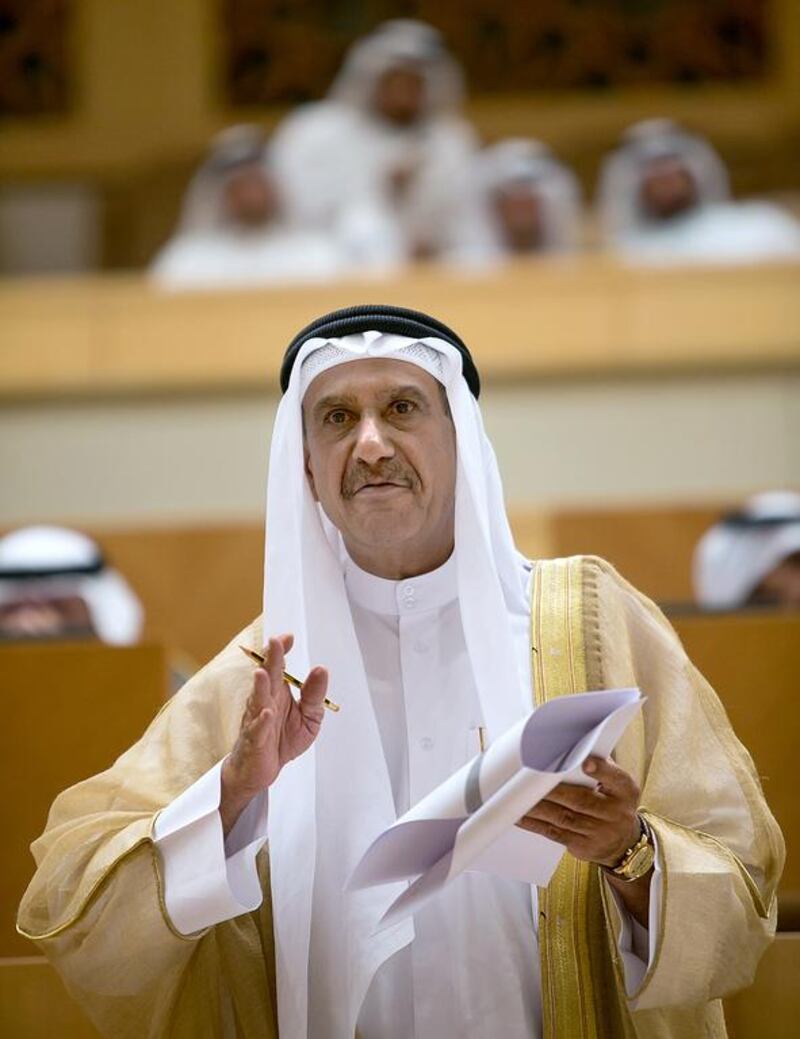ABU DHABI // Members of the FNC’s human rights committee said that domestic violence was largely not being reported.
They explained that families usually wanted to avoid going to court because the matter could spiral out of their control, or they feared the shame of public exposure. But there was no path for victims of domestic violence other than legal recourse.
In their recent visits to Ewa’a centres that shelter women and children, the committee members found that the Ministry of Social Affairs had no way of helping victims.
The centres were unable to provide assistance because their responsibility extended only to victims of human trafficking.
The committee, which Ali Jassim (UAQ) chairs, concluded that the best way to help victims of domestic violence was to deal with such incidents without involving the law.
Some people might argue that domestic violence was a red line that should not be crossed in a marriage, but the committee said there was a need to allow for reconciliation.
In the West, there is a clear definition of what constitutes domestic violence.
In the Arab world, unfortunately, there is room for legal interpretation.
In October 2011, the Federal Supreme Court, which follows Sharia, ruled that a husband was permitted to beat his wife and children as long as he did not leave any marks.
A top official from the court told the committee, off the record, that he saw domestic violence cases on a daily basis. He also believed that family members needed a way to reconcile, away from the courts.
When the committee asked whether the violent fathers usually returned to their family after serving their jail sentence, the official replied: “100 per cent of the time they did.”
When there were children in a family, the father’s return was particularly inevitable.
The court official said husbands usually returned home for one of two reasons: to seek revenge on those who reported them to the police, or to beg for forgiveness.
Although the committee continued to examine domestic violence issues, Mr Jassim said it was clear that independent arbitration was needed.
While that may help to bring more cases to the forefront and provide anonymity to victims, one could not help but wonder whether this would downplay other cases that should rightly be sent to court.
Cultural norms pressure Arab women to accept a broken, abusive marriage when there are children involved, but such women still need someone to help them.
Telling them behind closed doors to return to their husbands and accept the situation was no longer a viable solution.
Women’s rights were too often dismissed. This became clear when an FNC member said that domestic violence should be downplayed when writing a report on field visits.
The member said there were rights for women, but there were too many rights “like in the West”.
However, there is no such thing as “too many rights” for women, especially when it came to domestic violence.
osalem@thenational.ae






